Sleep Apnea Treatment North Providence
Better Sleep Leads to Better Health
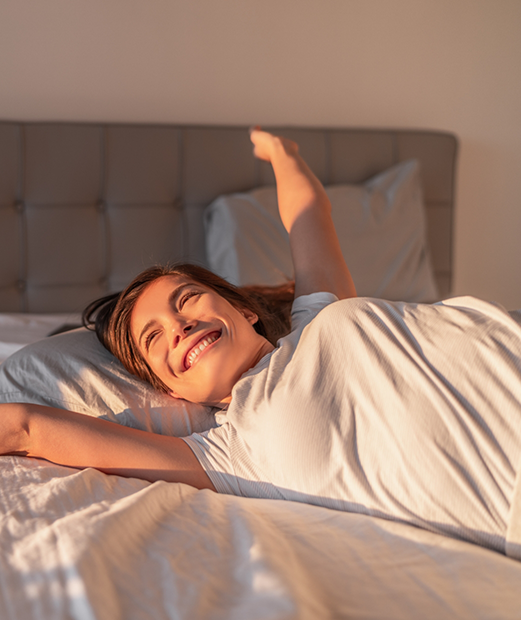
Do you or your loved one struggle with getting a good night’s rest? Snoring in itself is disruptive, and sleep apnea, often associated with snoring, is a disorder that can adversely affect your quality of life and lead to numerous health problems. Our Fotona LightWalker laser is a comfortable and non-invasive sleep apnea treatment and snoring cessation solution. Contact our North Providence team today for a consultation to learn how just a few in-office treatments can bring you better sleep.
Why Choose Bio Dental for Sleep Apnea Treatment with the Fotona LightWalker Laser?
- No Need to Wear an Oral Appliance Every Night
- No Need for a CPAP Machine
- Comfortable Treatment Yields Lasting Results
What Is Sleep Apnea?
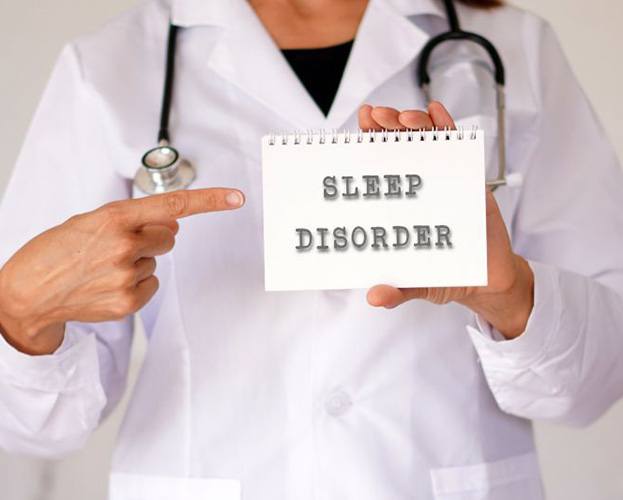
Sleep apnea is a condition that causes repeated pauses in breathing throughout the night. The most common form of sleep apnea, known as obstructive sleep apnea (OSA), happens when tissues in the throat block the free flow of air. If you have OSA, you may stop breathing dozens or even hundreds of times during a single night. These episodes disrupt the sleep cycle and can leave you feeling exhausted day after day.
Signs & Symptoms of Sleep Apnea
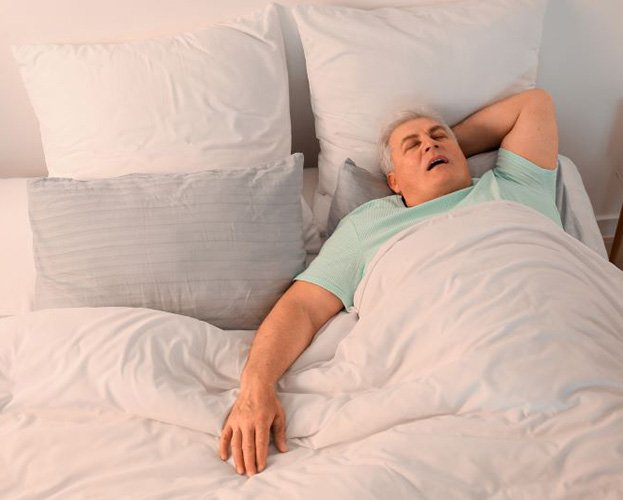
One of the most common signs of OSA is loud, frequent snoring; this happens because the same tissues that block the airway can vibrate noisily as air moves past them. Other indications that you might have sleep apnea include:
- Feeling exhausted despite sleeping for 7 – 8 hours.
- Frequent nighttime trips to the bathroom.
- Observed pauses in breathing.
- Moodiness and irritability.
- Reduced memory and concentration.
- Slow reflexes.
- Frequently waking up with a dry mouth, headache, or sore throat.
Learn More About Snoring Treatment
The Dangers of Sleep Apnea
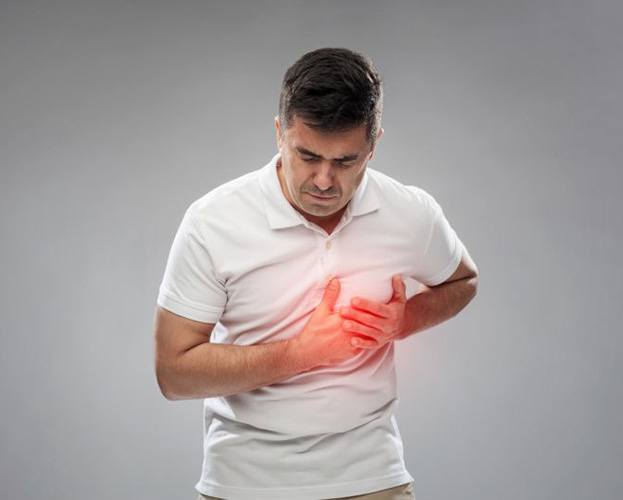
At first, sleep apnea might seem like nothing more than an annoyance. The truth is, though, that if it remains untreated for too long, it can seriously affect your health. It may cause or worsen the following conditions:
- Type 2 diabetes
- Unwanted weight gain
- Heart attack
- High blood pressure
- Stroke
- Depression and other mood disorders
- Memory problems and dementia
Additionally, sleep apnea has the potential to increase your risk of being involved in a serious accident because it can slow down your reaction times. The exhaustion it causes could even adversely affect your relationships with your loved ones.
Testing for Sleep Apnea
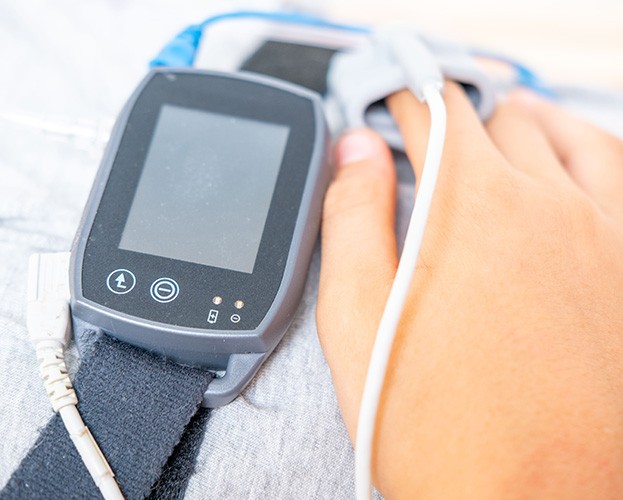
If you suspect you have sleep apnea, our team can help you get an official diagnosis. We can arrange for either in-lab or at-home sleep testing. After sophisticated machinery monitors you for a night, a sleep expert will analyze the results and contact you to discuss their findings. As a partner-in-health, we are also happy to work with your primary care practitioner to help you identify and manage sleep apnea.
Fotona LightWalker Laser Sleep Apnea Treatment — NightLase

Our treatment of choice for sleep apnea is known as NightLase. It uses the remarkable Fotona LightWalker laser to tighten tissues in your throat. Specifically, it heats and stimulates collagen in the soft palate and uvula. Therefore, these areas become firmer and less likely to over-relax while you are asleep. The result can be a drastic decrease in snoring and sleep apnea episodes!
You may experience significant results after just a few painless laser sessions. Better yet, this therapy does not require you to use any sort of device, such as an oral appliance or CPAP machine, on a nightly basis. All you have to do is settle into bed and drift off to dreamland!
Sleep Apnea FAQs
Why Should I See a Dentist for Sleep Apnea Treatment?
The physical symptoms of sleep apnea occur in the mouth and upper airway, which are the parts of the body that dentists know about the most! This enables sleep dentists like Dr. Castillo to evaluate oral anatomy to determine how likely a person is to have sleep apnea/snoring issues. Then, with NightLase, she can treat the physical source of the problem with extreme precision to open up the airway.
Does Everyone Who Snores Have Sleep Apnea?
No, snoring is not an automatic indicator of sleep apnea. If a person only snores occasionally and tends to feel fully rested in the morning, then they likely don’t have sleep apnea. However, if someone snores loudly every single night and exhibits other symptoms like daytime exhaustion, morning headaches, sore throats, and waking up feeling out of breath, sleep apnea is much more likely. However, it should be noted that patients who snore regularly but don’t have sleep apnea are shown in research to be at a much higher risk of developing the condition in the future.
How Long Are Apnea Events or Episodes?
A typical apnea episode in which a person stops breathing lasts for about 10 seconds or longer. While this might not seem like that much, these episodes can occur dozens and up to a hundred times an hour in severe cases. On top of being very stressful for the body, this interrupts the sleep cycle and prevents a person from reaching the deeper, more restorative stages.
What Does Sleep Apnea Look Like for Women?
As with many other medical conditions, women tend to experience sleep apnea slightly differently than to men. For women, symptoms like insomnia, morning headaches, and issues with mood regulation (“mood swings”) are more prominent. Snoring is also less likely compared to men with sleep apnea. The condition also seems to become much more prominent after menopause, possibly due to weakening muscles and hormonal changes.
Who Is Most at Risk for Sleep Apnea?
The leading risk factors for sleep apnea are obesity, increasing age, smoking, and excessive alcohol use. Men also tend to develop sleep apnea about two to three times more often than women because they experience higher rates of these risk factors. That being said, many people who are a healthy weight, relatively young, and don’t use these substances have sleep apnea due to less common reasons, so symptoms like snoring and persistent exhaustion should never be ignored.
